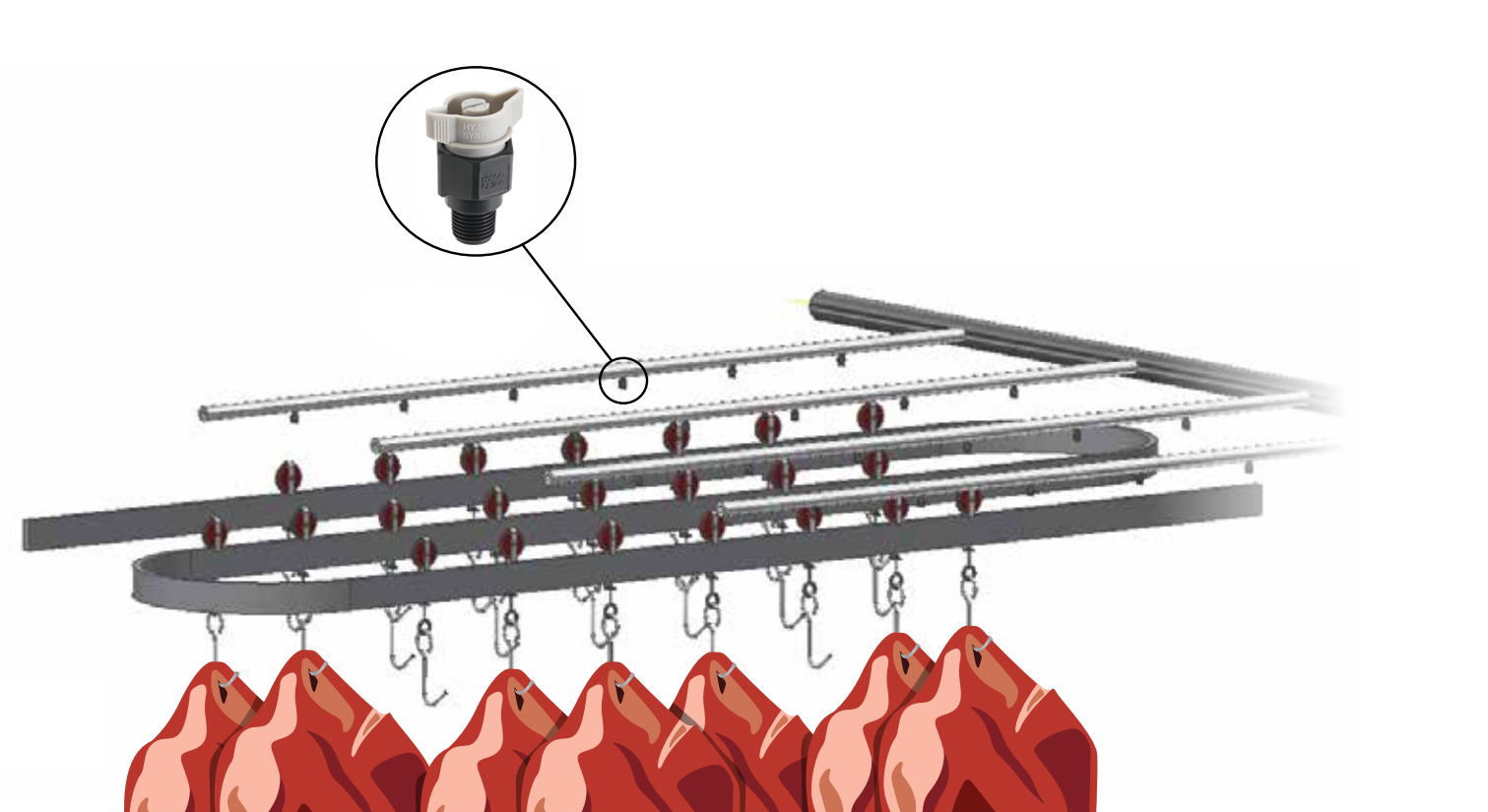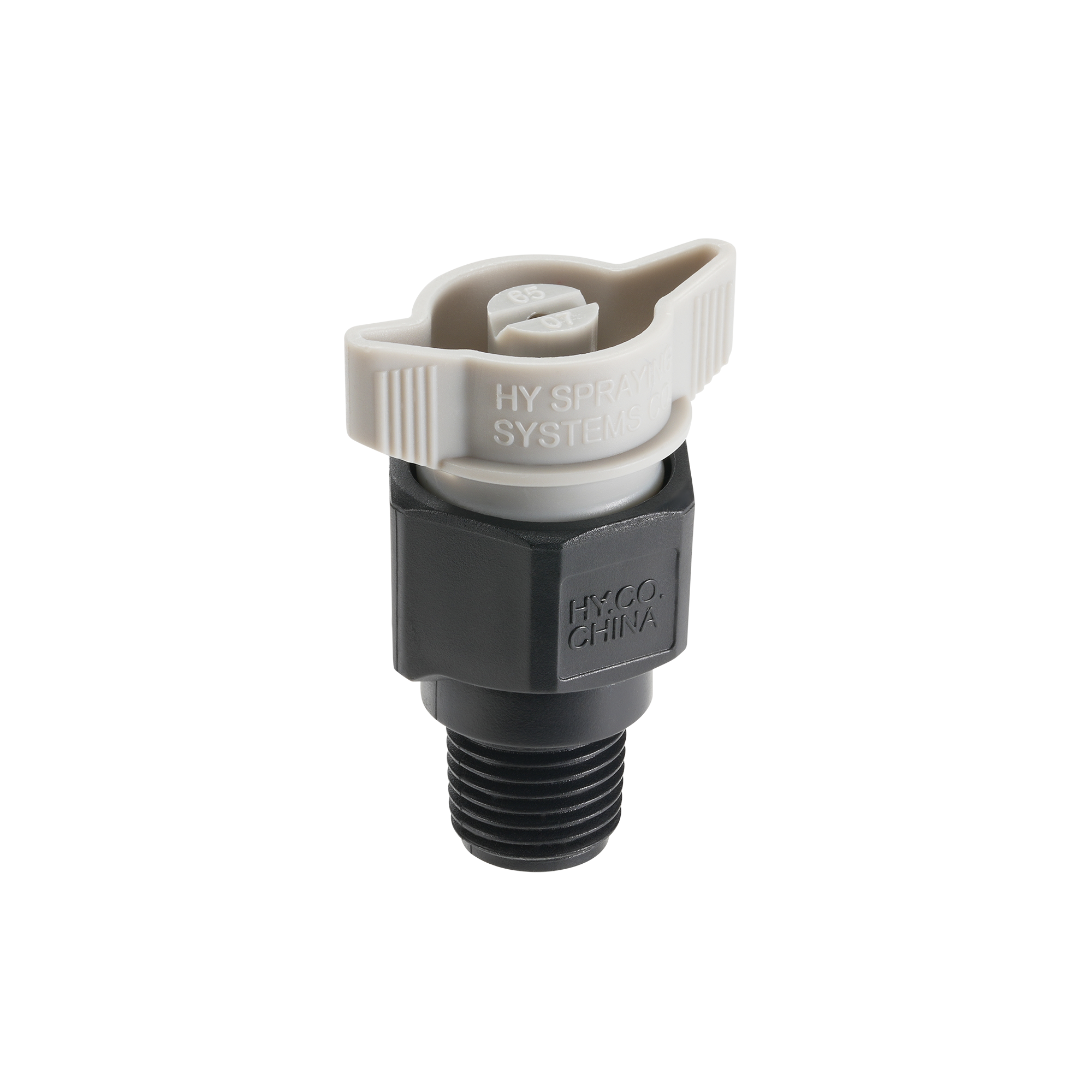A large international beef processor needed a more efficient way to freeze beef carcasses. The process required 189,271 liters of chilled water to be continuously sprayed on the carcasses over 18 to 20 hours to prevent weight loss and crumpling. Previous systems have not been able to fully spray the carcass and have required longer freezing times. As a result, the mass and size of the beasts were reduced, resulting in unnecessary loss of revenue. In addition to this, the previous equipment produced a water spray that resulted in ice buildup on the rails and equipment structure. The nozzles also required frequent maintenance and constant monitoring to keep the freezer operational and safe. The beef processor sought a better misting system to improve freezer efficiency, ensure complete spraying of carcasses and reduce maintenance requirements.

Bevane installed the Quick Release Series nozzles in one of the processor's nine freezer rooms. In order to achieve effective cooling, the processor now uses a combination of solid cone nozzles and wide-angle fan nozzles to apply a full, mist-free water spray to the animals. A third-party review has confirmed that freezing times have been reduced, and water consumption and ice build-up in the rails and refrigeration equipment have been significantly reduced, while weight loss of the animals during cooling has been minimized.

As the cooling time was halved, the use of water was greatly reduced, while the shrinkage of the animal was reduced, and the yield of the product was then increased. The remaining 10 freezers were similarly fitted with quick-release nozzles. The company now processes 1,750 head of beef cattle per day, weighing about 204 kg each, and has increased its daily revenue by almost $30,000, thanks to a 2% increase in production and a 44% reduction in water consumption. In addition, the new system saves 16.2 million liters of water per year, increasing the processor's sustainability efforts. The payback period for installing the quick release nozzles is expected to be less than 3 weeks.